This article by Martin Vengadesan was published on Malaysiakini. It is re-posted here with Malaysiakini’s permission. Click here to view the original article.
In many countries around the world, socialism is used as a derogatory term by right-wing politicians. For example, US President Donald Trump and his supporters attacked his predecessor Barrack Obama for “socialism” for trying to get the government involved in ensuring access to healthcare for all its citizens. Rather than challenge it, academia and media generally tend to propagate a bleak view of socialism.
This unjustified negativity is due in no small part to the use of the word by Communist dictatorships such as the old USSR (Union of Soviet Socialist Republics).
Even today there is a wide range of ideologically differing political parties on the broad left spectrum, many of them using the term ‘socialism’. On one extreme you have the closed despotic regimes like North Korea and one-party states like China and Vietnam, which talk socialism but are currently engaging in rapid development and consumerism that is extremely capitalist in nature.
On the other hand, there was a wave of Latin American left-wing governments in the early 2000s while old school social democracy is enjoying a renaissance exemplified by progressive, young, female prime ministers like New Zealand’s Jacinda Ardern, Finland’s Sanna Marin and Denmark’s Mette Frederiksen.
In Malaysia, however, the ideology has been on the fringes ever since the main opposition Barisan Socialis Rakyat Malaysia was decimated by the widespread use of the Internal Security Act to arrest and detain its elected officials in the early 1960s.
In the present day, despite having a well-developed ideological platform and programme of struggle, Parti Socialis Malaysia (PSM) supporters and members are often treated as labour activists and NGOs, rather than as representatives of a fully-fledged national party.
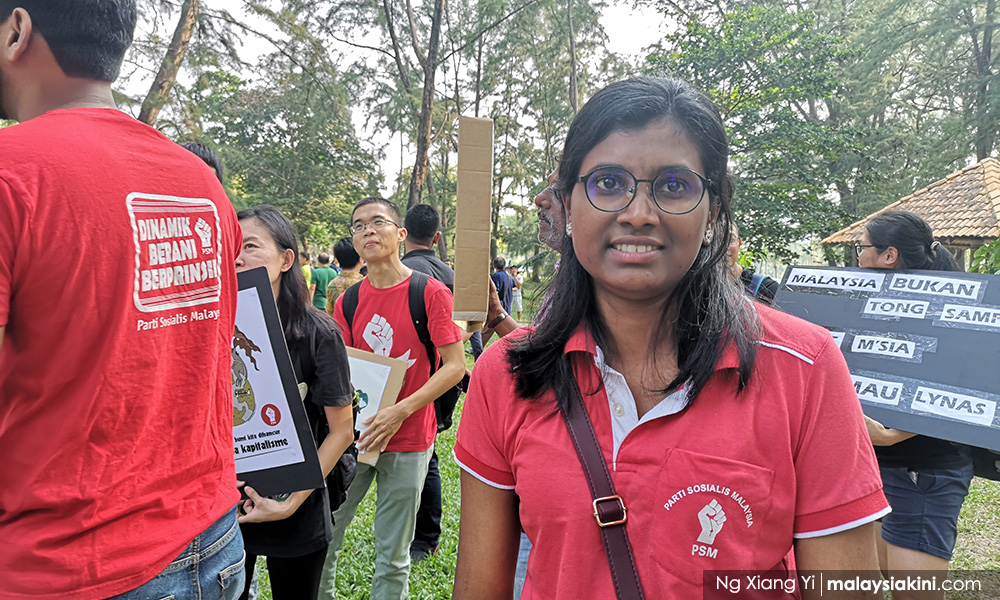
Over the weekend, the 22nd PSM general congress was held online. PSM is known for personalities such as former two-term Sungai Siput MP Dr Michael Jeyakumar Devaraj, deputy chairperson S Arutchelvan and secretary-general A Sivarajan, as well as the now-retired long time chairperson Dr Nasir Hashim and former deputy chairperson M Saraswathy.
The party also has a younger generation of youth activists, such as PSM Pemuda chief Nik Aziz Afiq (a defeated candidate in last year’s Semenyih by-election) and KS Bawani, but what was notable is PSM’s ability to draw newish young faces among the many participants.
We spoke to nine young party members to find out just what prompts a 20 something Malaysian to join a left-wing party like PSM.
PSM does sincere grassroots work
Like many, IT business analyst Vennusha Priyaa, 26, was a university student when first introduced to PSM.
“I was always keen to contribute to society and did some small charity work here and there. I joined a student movement advocating free education and later learned that PSM’s student front was the main group leading this. I officially joined PSM in 2017,” Vennusha said.
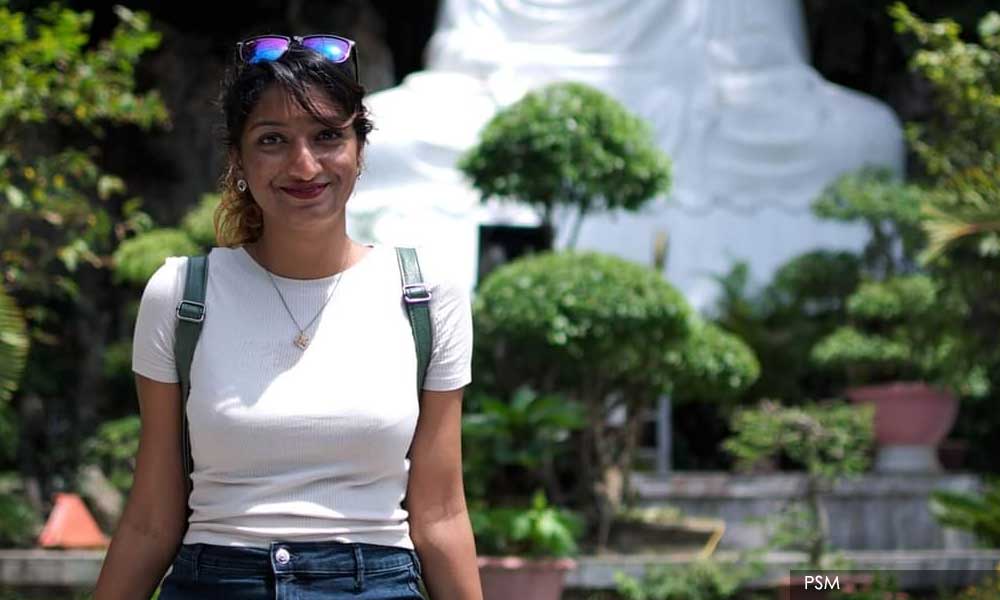
Yap Xin Yit, 20, is currently a university student who joined the party early this year. He says he admires the grassroots work PSM has done. “I joined them because I wanted to fight for a better future for all Malaysians, particularly for disabled people as their needs, and concerns have been sidelined,” Yap told Malaysiakini.
“I was first drawn to PSM after joining a foster programme with single mothers from the Program Perumahan Rakyat (PPR) community that PSM had conducted,” recalled Ahmad Yasin, 22, yet another student who has gravitated towards the party.
He said he was impressed that PSM members interacted with the PPR community without any attempt to indoctrinate anyone and worked purely due to their concerns for the socio-economic challenges facing the community.
Interestingly Ain Zafirah Md Said, 28, who joined the party this March, says that her political awareness developed after she was detained for three days when a social media comment she made in September 2019 was reported.
“This detention stirred my awareness of human rights issues, and I realised that an ordinary citizen is also qualified to fight for fundamental rights in a more formal way through a party struggle.

“Through my experiences as a general worker, I witnessed many unjust treatments, whether by employers who do not pay wages or authorities who are supposed to protect the public but abuse their position.
“Most of us experience this but choose to hide our feelings and remain silent, rather than act because we feel weak and helpless. I chose to join PSM because I believe this party is more willing to listen and work hard to defend the rights of the people, especially in issues of workers’ rights, regardless of rank, race or religion,” Ain Zafirah said.
Brainwashed against socialism
Danial Hakeem Azman, 25, works with Jaringan Pekerja Kontrak Kerajaan, an NGO that fights with support service workers in government premises who have been disenfranchised due to their employment under outsourced contractors.
These workers include cleaners, security guards and gardeners in public hospitals who are given scant job protection, despite playing an important role during the pandemic. Danial believes that societal structures are stacked against socialism for a reason.
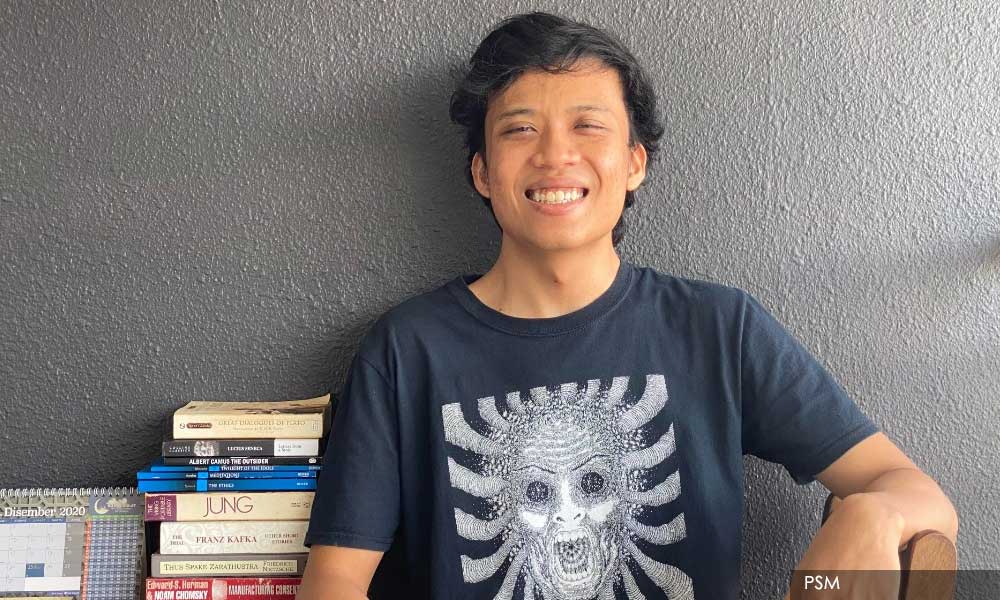
“The mainstream media is monopolised by and for capitalists’ interest; which includes denying space for any alternatives and dissenting voices that threaten the process of the hoarding of wealth.
“A system that prioritises the well-being of the environment (which includes ourselves) over wealth-hoarding will face great silencing efforts from major players of the game.”
Danial says that those who have vested interests harp upon previous failed experiments to demonstrate and deem to be inherent and irredeemable faults of socialism.
“This vicious cycle of indoctrinations that went through the masses also produces a consumer society that will only consume capitalist-approved media, which continuously propagates lies about socialism.
“Yet, in my opinion, workers are aware that they are being exploited, they know that the elites don’t care about them, they know the full fruit of their labour won’t ever be theirs and workers’ rights are on the decline; yet they fear exploring alternatives to capitalism,” he said.
Gandipan Nanthan Gopalan is a 24-year-old environmental scientist who joined the party in 2017 and he sees anti-socialist propaganda as having become ingrained in parts of the world during the Cold War era.
“Western countries and their allies used media conglomerates to spread propaganda to legitimise their attacks against left-leaning countries. This approach still continues until today, where we can see relentless attacks against countries like Cuba, Venezuela and character assassinations against socialist leaders like ex-Brazilian president Lula, ex-UK Labour Party leader Jeremy Corbyn and former Bolivian president Evo Morales.
“Apart from that, bad political decisions taken by previous leaders in left-wing countries damaged the reputations of socialism,” Gandipan said.
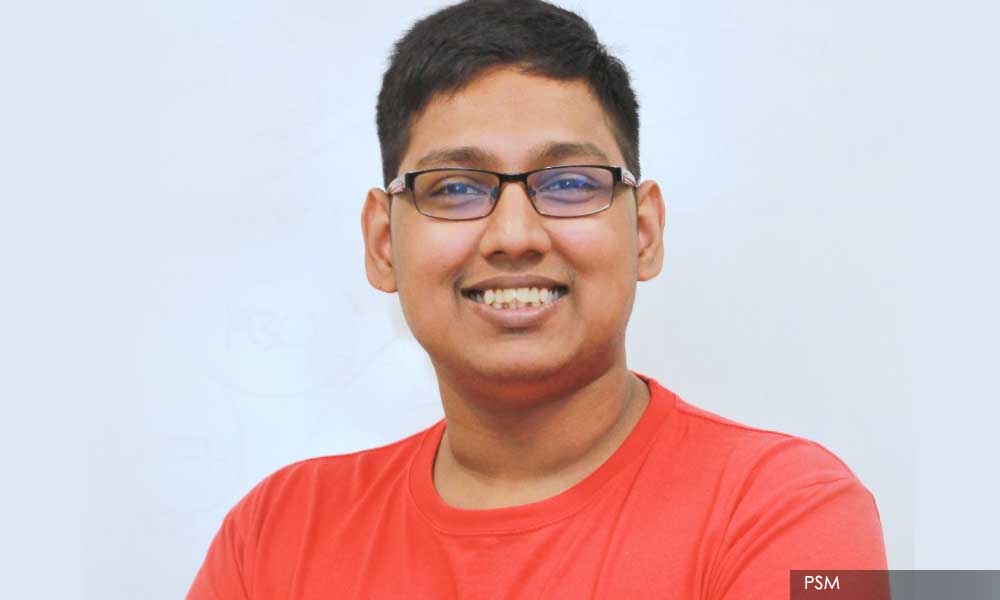
Arveent Srirangan Kathirtchelvan, 26, is a change and transformation management executive who joined PSM in 2018.
“Socialism has a negative reputation due to the hard work of capitalists painting a negative picture of it. The United States and its allies have led huge propaganda initiatives to paint socialism as authoritarian and a failure.
“What they don’t say is how they actively deposed democratically-elected socialist leaders in Chile and how they destroyed the economies of countries like Cuba and Venezuela through embargoes.
“To detractors, I say only one thing: Socialism is the only ideology fighting for those who have been exploited for capital gains. Farmers, those working long hours for low pay, those who can’t afford housing or healthcare – all of these people are those big capitalists have exploited to fatten their own pockets. Why should we be ashamed to fight for them?” Arveent added.
Malaysia’s left-wing history is buried
History is written by the winners, they said, and there is little doubt that the role of the Malaysian left has been written out of our history books. One key problem is the role of the violent struggle of the Communist Party of Malaya, which played a role in battling the Japanese occupation during World War II – and then also waged a war against the British occupiers and the government of newly-independent Malaya.
Aside from this, there are many flashpoints in Malaysia’s left-wing history – the 1947 General strike called by Putera-AMJCA, the electoral success of the Barisan Socialis in the late 1950s and early 1960s – which was then crippled by lengthy detentions without trial, and the farmers protests led by Hamid Tuah in the 1970s.
PSM has regularly been conducting history and ideology classes to introduce their youngsters to their own past.
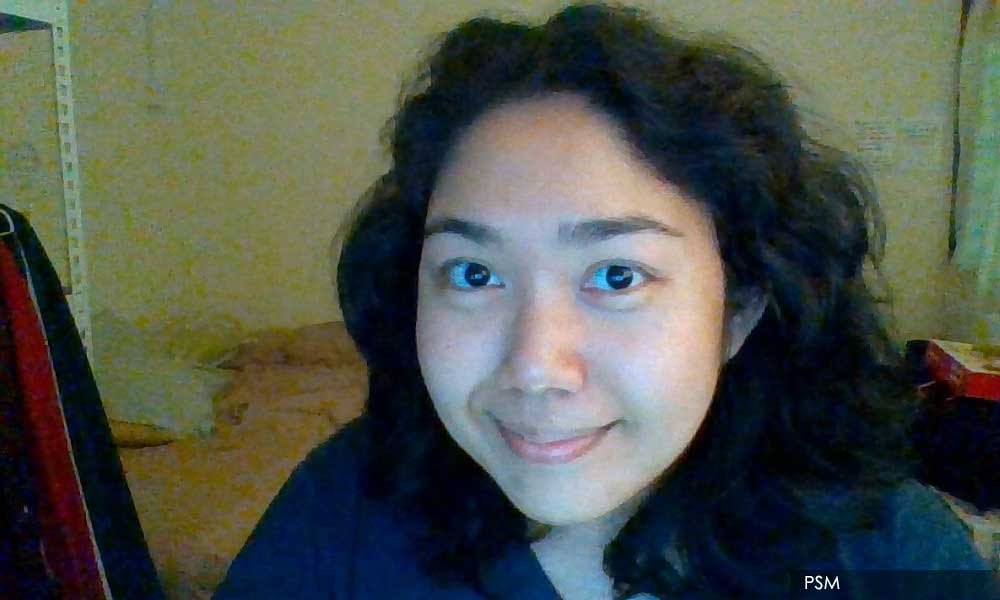
Mahira Khairia, 29, is a marketing and business development associate, freelance graphic designer and photographer who joined the party in April 2019. She is one of those taking part in the history classes.
“I look up to the current normal members of PSM today because their everyday struggles and efforts to help are still visible and they still persist in fighting for the people until today.
“It takes time to unlearn what society has taught us to believe, but the world is changing. We are approaching an era of uncertainties; depleting resources worldwide, the biggest gap in economic inequality worldwide, crisis after crisis under the capitalist and imperialist regimes that have radicalised the public into fighting for change, rather than relying on the powerful for solutions.
“Mass protests, massive online campaigns with worldwide followings have connected the public to learn and realise how the capitalist system has failed – from wage, gender, class, race equality and to even the right to healthcare. It has failed the weakest and only served the richest,” she said.
Mahira, who first came across PSM on Facebook, said she is drawn to the party’s fight for marginalised communities, such as labourers the urban poor, and even those who are shunned from society, like the LGBT+ community, against the capitalist system.
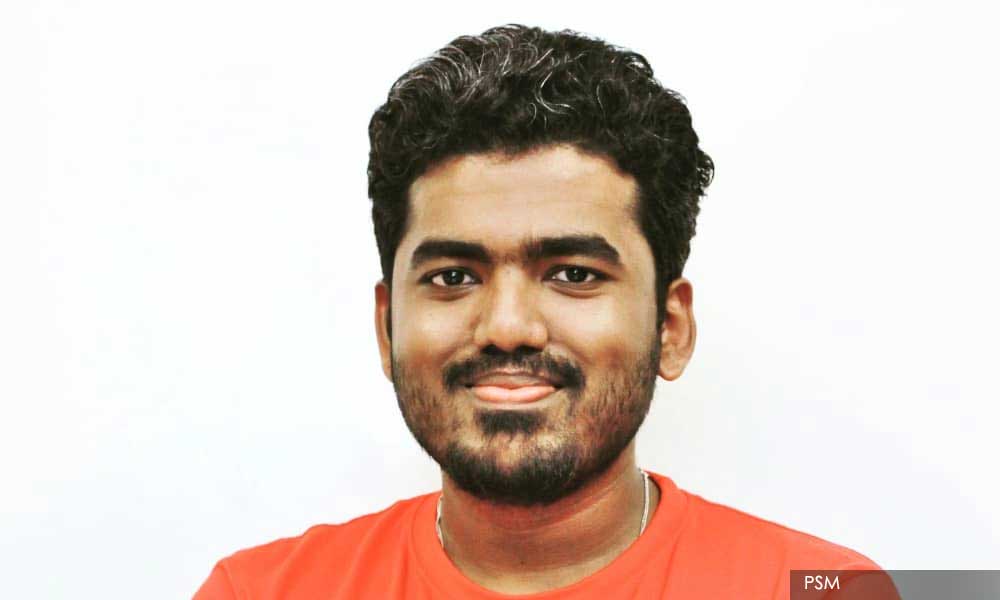
Gandipan says he is still in the process of learning about Malaysia’s socialist history and is drawn to SA Ganapathy, the first president of the Pan Malayan Federation of Trade Unions who was hanged by the British in 1948, and Ahmad Boestamam the Parti Kebangsaan Melayu Malaya (PKMM) leader who spent many years in detention.
“I admire their ideals, principles and bravery,” he said.
Arveent said he is quite familiar with Malaysia’s left-wing history after attending PSM’s ideology classes on it.
“I can say that I particularly admire Ahmad Boestamam. He was part of the PKMM, a left-wing Malay nationalist party that led Pusat Tenaga Rakyat (Putera) and, along with the All-Malayan Council of Joint Action (AMCJA), wrote the People’s Constitution of 1947.
“This pushed for Malayan Independence much before the likes of Umno. In fact, the left-wing nationalists were the true freedom fighters for Malaya, whereas the right-wing Perikatan (Umno, MCA and MIC) simply were the lapdogs of the British who further protected their interests in Malaya, economic and otherwise.
Boestamam then was jailed without trial due to the British fear of the left-wing and after the Emergency, Boestamam founded Partai Rakyat, which later became Parti Rakyat Malaysia, from which PSM emerged in 1998, says Arveent.
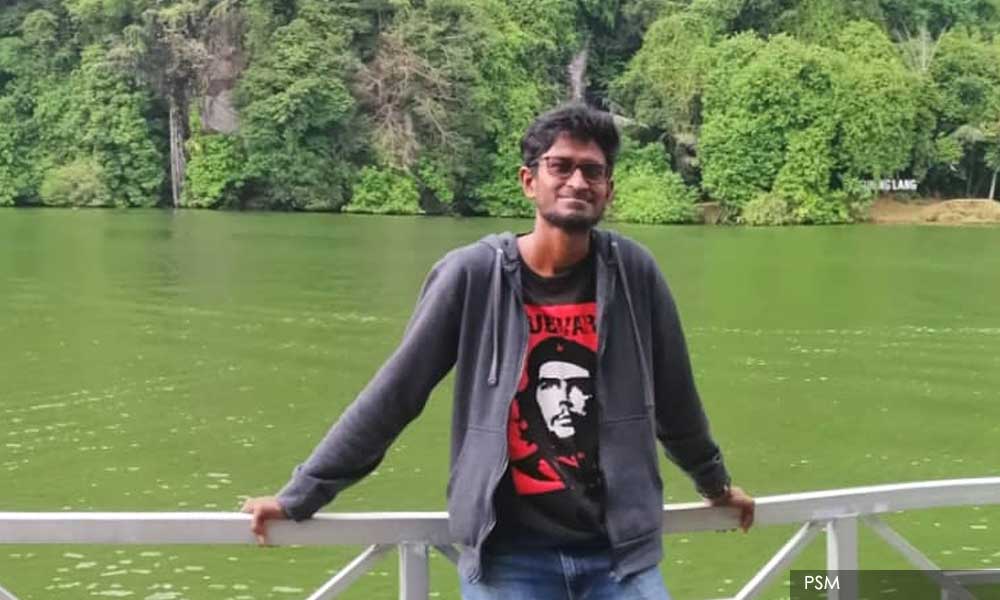
V Kesavan, 27, is an activist at Pemuda Sosialis who still studying and also organises a rural student group in Perak. He joined PSM right after his STPM exams because he was looking for a party that was sincerely seeking a solution for poverty eradication.
“I know about the contribution of the left movement groups in the struggle for the independence of Malaya and my inspiration is Ahmad Boestamam and former CPM leader Samsiah Fakeh,” Kesavan said.
Ahmad Yasin is another who started to become familiar with Malaysia’s left-wing history through the PSM classes he attended.
“It was more of an alternative way to look at history through the leftist narrative. I don’t really have any leader to admire, because, to harp on a dead person’s contribution to the world is stupid,” Ahmad said wryly.
Minimal differences between BN and Harapan
A common thread among the young PSM supporters was that while they had long been opposed to the more despotic, corrupt and exploitative aspects of the Barisan Nasional rule and they feel that Pakatan Harapan did not offer a significantly better alternative.
“I think Harapan tried to, maybe, change some of BN’s ways but ultimately, nothing changed.
“It was a big let down for me, especially some laws regarding child marriages, etc, which can be done away with easily. Politicians are elected and are supposed to think of the people, not what are the “politically correct” decisions that will allow them to be in and maintain power,” Vennusha said.
Yap concurred, saying that both major coalitions were supportive of neoliberal capitalism at the expense of workers and their livelihoods.
“Young people like me are fed up with the struggles of the big parties like Harapan and BN. They are too focused on using race and religion to gain power, so that they benefit instead of the people,” Ain Zafirah said.
“The best way to bring about positive change in living standards for the common people will be a result of the struggle of left-wing socialism, not mainstream parties,” she added.
Danial was even more scathing.
“The anti-Icerd rally was attended by thousands; political giants were endorsing it, yet Harapan did nothing but bow to the demands of racism and xenophobia.
That showed me that they are two prongs of the same fork, two puppets from the same ventriloquists and that they are there to give us the illusion of choice that we can actually change the system from within, once every five years or so,” Danial said.
Gandipan said that under Harapan, the media gained some freedom and it was easier to approach ministers and officials to talk about issues, but those were the only differences he could think of.
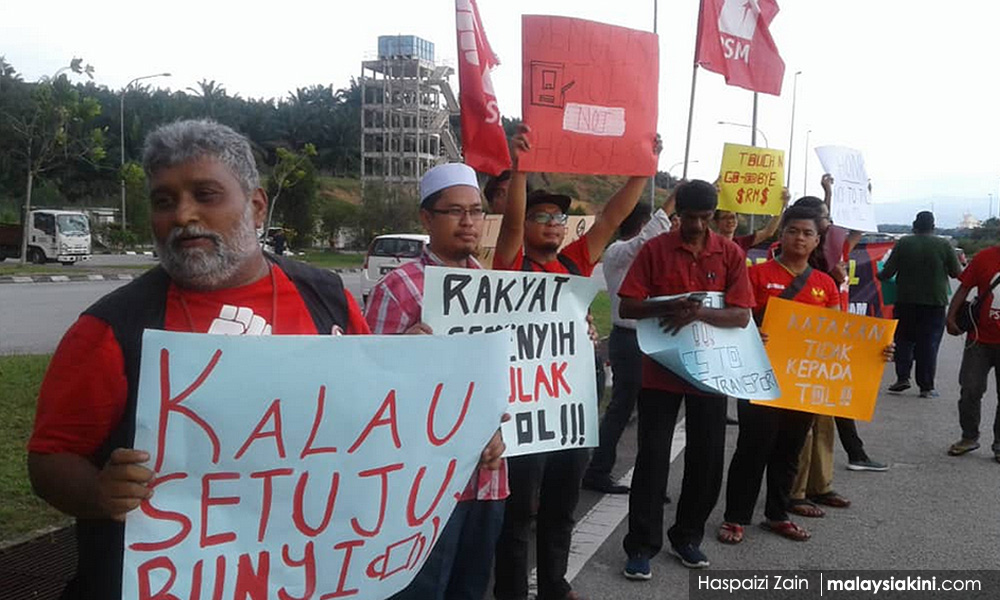
“Working people in Malaysia are being thrown under the bus through neoliberal and austerity policies, despite the changes in parties running the country,” he added.
Mahira too felt that the coalitions were simply the same old players, dedicated to preserving and protecting the same game that benefits none but the rich and powerful.
Arveent said Harapan was merely the lesser of two evils.
“Where BN wore evil on its sleeves and stole openly from the rakyat, Harapan fought to keep the status quo of capitalism alive with their oppression of the labour force and support of housing developers.
“Of course, there have been pockets of progress. Hannah Yeoh as deputy women, family and community development minister did a great job. So did Gobind Singh. But were these enough? Simply put, no,” he said.
A mosquito party that still draws blood
One of the biggest challenges facing PSM is its failure to reach beyond Peninsular Malaysia’s Indian community. A large percentage of its prominent leaders and party cadres are Indians from the West Coast states like Selangor and Perak. This, coupled with the loss of parliamentary representation that came when PSM ran independently of Harapan in the last GE, has led to the party being dismissed as a mosquito party with limited impact and appeal.
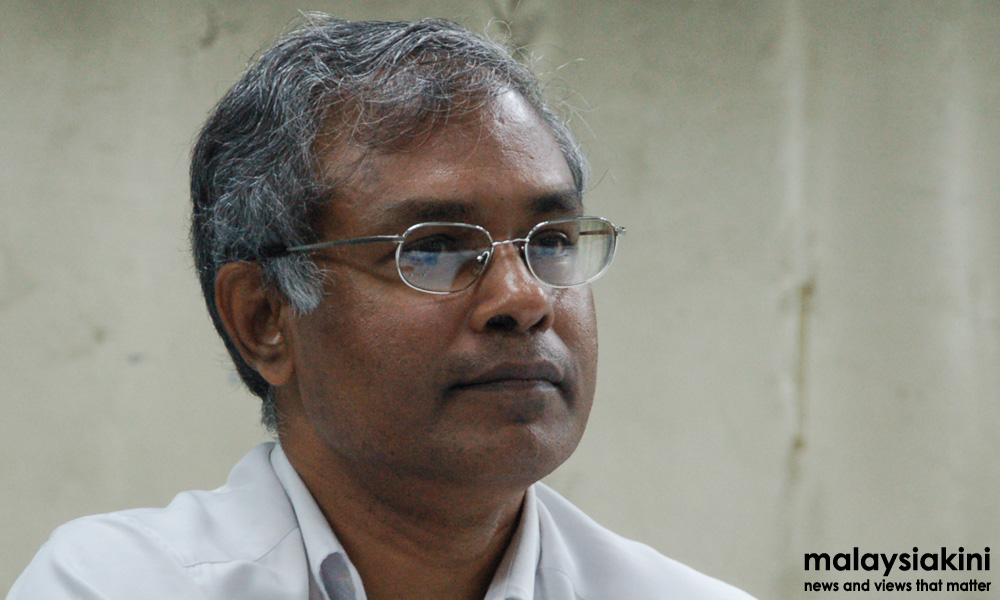
“There was some disappointment with election results,” says Kesavan of the GE14 in which PSM put up candidates in five parliamentary and 14 state seats only to suffer crushing defeats with all candidates, including Jeyakumar, losing their deposits. In fact, the 19 candidates collectively polled a dismal 3,782 votes out of more than 12 million votes cast.
“But the party won many struggles and successfully conducted many campaigns. For example, minimum wage laws and the employee insurance scheme were issues the party has been campaigning for since the 90s.
“Our youth wing is getting more and more non-Indian members now, so we think we should continue our good work. The party should also conduct more discussions, workshops & forums with rural youths,” Kesavan said.
“I do feel frustrated at times because we’re a small group (by numbers only), but even with a small number of us, I have seen the major positive impacts PSM brings to the nation. I know we can do so much more, if only we had more people and political power,” Vennusha said.
Yap feels that PSM is gaining ground as people appreciate the work the party puts in.
“Championing more on issues faced by young people, such as affordable and quality education, employment, and climate change, is needed,” he said.
“PSM does appeal to all races, but as the majority of the most exploited workers are Indians, it is not surprising that non-Indians think the party mainly cares about Indians.”
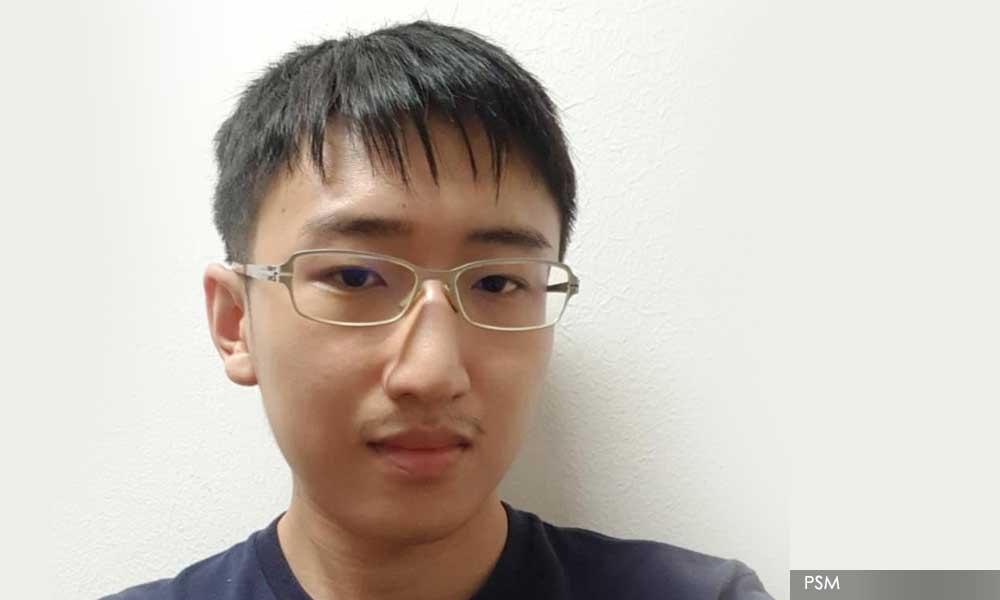
Ain Zafirah said Malaysia’s working class is crying out for a champion and PSM can be that voice.
“It is difficult to break up the crowd mentality about PSM, especially among the Malays. I can say I joined PSM because I was interested in the party’s efforts in the struggle of the people and workers.
“PSM has the courage and high fighting spirit to raise serious issues related to the rights of the people who often get less attention.
“The party needs to become more approachable and friendly and learn how to present its message effectively. If the public is still indifferent and does not care to defend their rights, the effect of oppression will continue for generations to come,” Ain Zafirah said.
Danial said that the government is failing to respond to the needs of the new generation, especially with regard to the environment and climate change.
“PSM is the only political party that acknowledged the ongoing ecological collapse and actively proposes solutions for the government for green reforms, and the members themselves walk the talk.
“I have never seen a group of people so dedicated to their cause of not only resisting; but fighting oppression. Right now, youths all across the globe are also disenchanted with the way capitalism brings both public and private entities together as two prongs from the same oppressive mechanism.
“The last few months have further exposed the level of capitalism’s disinterest in caring for the people during a global pandemic and it becomes increasingly clear that the current system will care for nothing but the growth of capital.”
“Although we didn’t win any seats in the last election, the struggle of the people never stops and people being evicted and retrenched are on the rise; suicide cases and attempts are also increasing, yet the ruling elites did nothing, proving further that an alternative is needed more than ever.
“PSM has done great work in these issues, from suggestions of temporary basic incomes and for the government to create ‘green’ jobs, to increasing budgets for the public mental-healthcare and tons of grassroots activities,” Danial said.
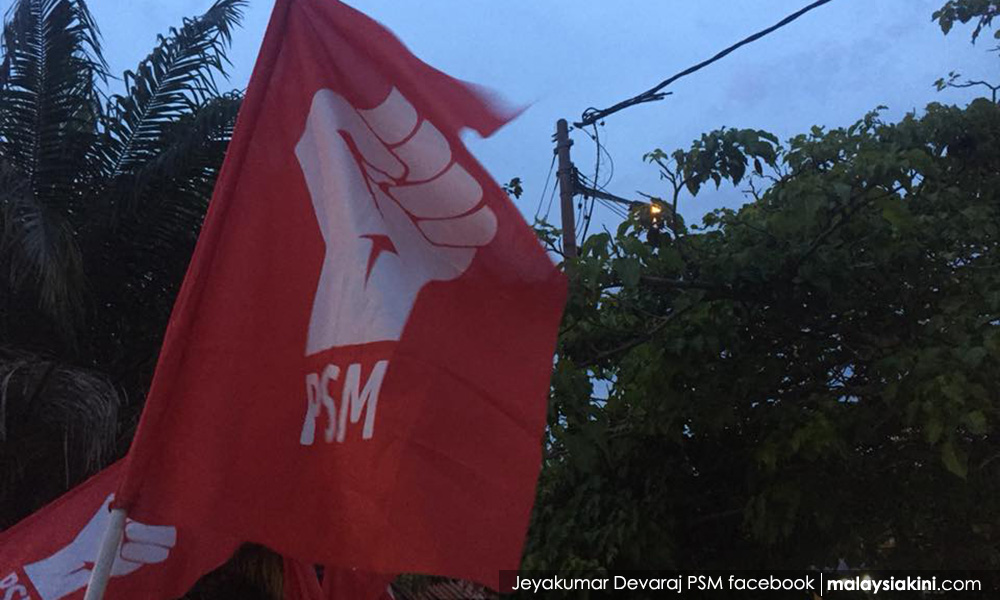
Interestingly he cited satirical memes and social media as key campaign tools for the party.
Mahira also agrees that the party needs to maximise the use of social media with left-wing ideologies targeted for a broader audience, using the right sensationalism the media is so accustomed to using in grabbing the readers’ attention.
“We should not be afraid of being vocal on our left-wing ideologies, even though we could be apprehended for it, unfortunately.
“PSM needs to find those who are determined to make a change for the benefit of all, not just a selected demographic.
“For those who are sick and tired of the same old political shenanigans and continue to be a victim of the oppressed system meant to enslave people, I urge you to at least get to know us and what PSM fights for, because chances are, we’re already fighting for what you want to fight for, too.
“As a non-Indian Malaysian citizen, I can personally say that PSM is inclusive and continuously welcomes those who are interested in a better future for Malaysia,” Mahira added.
Arveent admits to being frustrated over the party’s size because he feels that, with increased visibility, PSM could carry its struggle much further.
“This is not due to any personal political ambition. The reality is that we have done extensive work on the ground and know the real issues that affect the people. From the faulty system of PPR housing, where there are simply not enough houses for the B40, to the exploitative practices around migrant labour compounded by a corrupt government, we are aware and fight hard outside Parliament against them.
“If we were larger and had a few seats, we could theoretically fight harder.
“However, politics isn’t all about electoralism. Politics is about the people, first and foremost. We fight on the ground to organise the masses and build people’s power to independently solve their own problems. We set up labour unions, housing associations and many other fronts against capitalist exploitation. That is real politics.
“Yes we are small, some call us a mosquito party, but we have won thousands of labour cases, houses for plantation workers, compensation for those wronged by capitalists and many, many more grassroots battles. No other party does this and has this impact. We are a mosquito party with a mammoth impact,” said Arveent.

One Comment Add yours